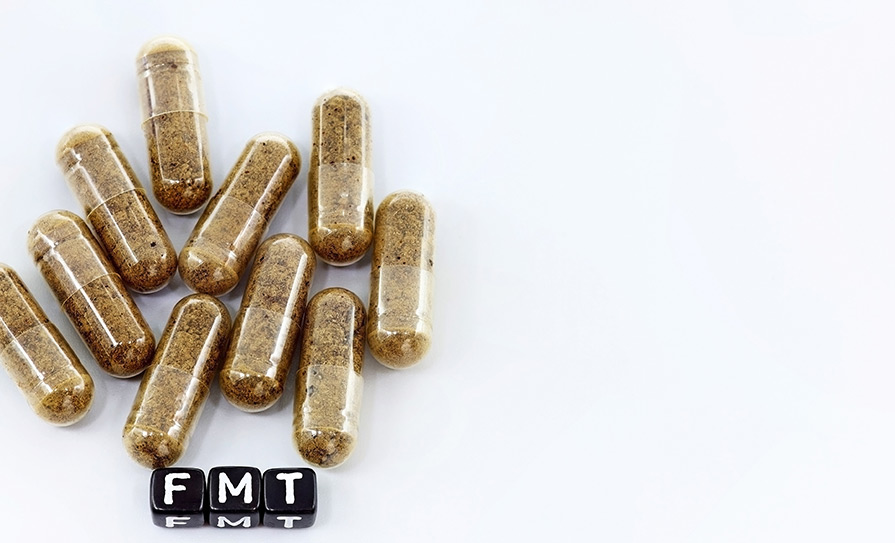Researchers have demonstrated for the first time that faecal microbiota transplant (FMT) can treat advanced cirrhosis by restoring a person’s gut barrier function and augmenting the metabolism of ammonia.
The results of a feasibility trial were presented by co-lead Dr Lindsey Ann Edwards, FMT Research Director at King’s College London, during the European Association for the Study of the Liver (EASL) Congress 2023.
Patients suffering from cirrhosis experience reduced gut bacterial diversity with an overabundance of pathobionts (harmful microbes) in their gut microbiome. This imbalance, combined with compromised gut barrier function, allows bacteria to translocate the body and a reduced antimicrobial immune response heightens the risk of infection and mortality.
The placebo-controlled randomised single-blinded feasibility trial of 32 patients with advanced cirrhosis involving an FMT led to engraftment and restoration of gut diversity and reduced ammonia retention in the blood. The landmark trial demonstrated that FMT modifies the gut microbiota, enhancing intestinal barrier function, antimicrobial mucosal immunity, and ammonia metabolism.
“These initial findings are promising news for patients with chronic liver disease who are in desperate need of alternative treatment options,” said Chief Investigator Prof Debbie L Shawcross, Professor of Hepatology and Chronic Liver Failure at King’s College London.
In the trial, the faecal transplant was raw material administered via an endoscopy. As a next step the researchers have since manufactured faecal capsules that patients can ingest in a similar way to their
other medication.
Prof Shawcross and the team at King’s College London have commenced the PROMISE trial, a 300-patient multicentred placebo-controlled randomised controlled trial of the FMT capsules that will involve multiple dosing of the capsules and follow-up for two years. Alongside this, they are working with the British Liver Trust UK, The Policy Institute King’s College London and other key stakeholders including EASL to integrate this treatment into clinical guidelines.
“There is an urgent and unmet need to tackle infection and antimicrobial resistance in chronic liver disease. Reducing the susceptibility and incidence of infection in this specific group of individuals will lead to fewer prescriptions of antibiotics, reduced hospitalisations, and reduced incidence of antimicrobial resistance, which could be of huge global societal benefit,” said Dr Edwards, scientific lead on the feasibility trial.
Meanwhile, a separate study presented at the Congress showed that naltrexone is safe and effective in achieving abstinence and reducing alcohol craving in cirrhotic patients with alcohol use disorder. Dr Manasa Alla of the Institute of Liver and Biliary Science, New Delhi, India, outlined the results of the drug’s safety and efficacy from a first-time double-blind placebo-controlled trial in a group of 100 people with advanced cirrhosis.
Dr Alla reported that naltrexone can be safely administered to patients with compensated cirrhosis, effectively achieving abstinence and reducing alcohol craving scores at the three-month mark. With continued alcohol use being a major determinant of long-term outcomes in alcohol-related liver diseases, these findings from a double-blind randomised trial highlight the potential of naltrexone to positively impact patient survival
and wellbeing.













Leave a Reply
You must be logged in to post a comment.